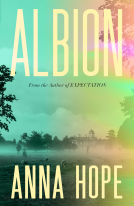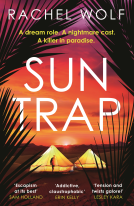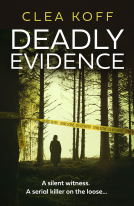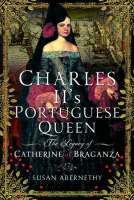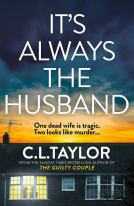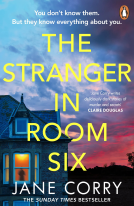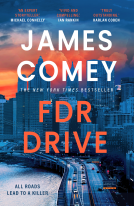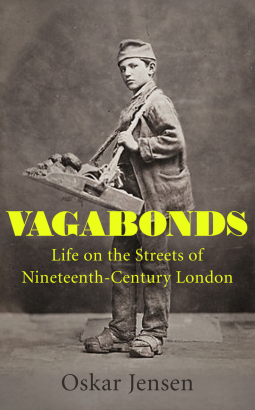
Vagabonds
Life on the Streets of Nineteenth-century London
by Oskar Jensen
This title was previously available on NetGalley and is now archived.
Send NetGalley books directly to your Kindle or Kindle app
1
To read on a Kindle or Kindle app, please add kindle@netgalley.com as an approved email address to receive files in your Amazon account. Click here for step-by-step instructions.
2
Also find your Kindle email address within your Amazon account, and enter it here.
Pub Date Jun 02 2022 | Archive Date May 12 2022
Talking about this book? Use #Vagabonds #NetGalley. More hashtag tips!
Description
Compelling, moving and unexpected portraits of London’s poor from a rising star British historian – the Dickensian city brought to real and vivid life.
Until now, our view of bustling late Georgian and Victorian London has been filtered through its great chroniclers, who did not themselves come from poverty – Dickens, Mayhew, Gustave Doré. Their visions were dazzling in their way, censorious, often theatrical. Now, for the first time, this innovative social history brilliantly – and radically – shows us the city’s most compelling period (1780–1870) at street level.
From beggars and thieves to musicians and missionaries, porters and hawkers to sex workers and street criers, Jensen unites a breadth of original research and first-hand accounts and testimonies to tell their stories in their own words. What emerges is a buzzing, cosmopolitan world of the working classes, diverse in gender, ethnicity, origin, ability and occupation – a world that challenges and fascinates us still.
Available Editions
| EDITION | Hardcover |
| ISBN | 9780715654392 |
| PRICE | £20.00 (GBP) |
Featured Reviews
 Librarian 450990
Librarian 450990
A fascinating & brilliant account of the poor in 19th century London as told through their eyes. Jensen uses Biographies, and interviews amongst other things to help them tell their stories.
He paints a rich picture of their lives, and how even in the worst of times these people have their dignity, something the charitied like Barnados and the Mendicity society seem to forget.
He paints a rich picture of the people that is utterly compelling and heartbreaking.
From little Arthur Turner aged 6 who nearly suffocates in a chimney while attempting to clean it, to Joseph Johnson, a black sailor from the Caribbean with a wooden leg who sings sea shanties with a ship on his head praising the British Empire while not able to receive a pension because of his colour.
This is a must for history lovers and genealogists alike
“Vagabonds: Life on the Streets of Nineteenth-Century London,” by Oskar Jensen (ISBN: 9780715654392), publication date 2 Jun 2022, earns four stars.
One might be tempted to recall Dickens, et.al., when reading this book but then that would do this book an injustice for Dickens stayed on the surface whereas this author dives deep into the gritty, debilitating, and oppressive reality faced by those individuals who actually lived on the streets of Victorian England. These were real people; they had names.
His approach is to tell their stories by categorizing the vagabonds (or victims, as he also calls them) into “the seven ages of man,” i.e., infancy, young boyhood, adolescent girlhoods, newcomers, professionals, old age, etc. He uses their words, those of their observers, and others to paint as bleak a reality as can be imagined. Juxtaposed to their plight are those more fortunate citizens who range from preying on the street people—many of whom are children—to providing them genuine assistance.
In the end, the author is sympathetic, even admiring, of these vagabonds, who by force of circumstances create their own environment, society, and freedom while plying their trades in and around the streets of 19th Century England.
It is an evocative book, one that promotes great sympathy, but one that also takes the vagabonds who are one-dimensional literary characters to living, breathing, three dimensional human beings. In doing so, he reveals the worst and best of people, while admiring the pluckiness of those on the streets even as he deplores their conditions in which they live.
Thanks to the publisher, Duckworth Press, for granting this reviewer the opportunity to read this Advance Reader Copy (ARC), and thanks to NetGalley for helping to make that possible.
 Fran E, Reviewer
Fran E, Reviewer
"...I want to listen to...voices that have rarely been heard and taken seriously. These voices-which cried out their wares, services, wants or simply sang a song...belong to those who lived and worked in London's streets between the 1780s and 1870s...urchins and prostitutes, pickpockets and sweeps, beggars and ballad singers."
-Oskar Jensen
The streets of Victorian London. "While respectable London saw them as places to pass through, conduits for capital and traffic, the people in the street saw them as places to be...". Mary Ann Donovan, age 18, attempted to sell combs in London's financial district. Her travail resulted in a fine and fourteen day incarceration for "obstruction-by creating a crowd of comb-buyers...[Was] selling combs...a cover for immodest purposes?" "Undaunted and unbowed, she has her say..." though, to no avail.
"The mewling infant is an asset to the street supplicant." A thirteen year old girl is out "singing, begging, generally making a scene." Her eleven year old sister carries their infant brother. The child's cries reach a fever pitch. He is being stabbed repeatedly, in secret, with a large pin. This is working "in a way the words of the song...could never be...people are stopping...fumbling for pennies." The children's father had sent his children out begging to supplement his fondness for "spirits". "...no account of [street infants] was complete without an itemisation of rags, holes and bare feet...Rags were essential stage-dressing for charitable exchanges...".
Easter, 1824. "Shame is an important part of street life." Cotton-winding and help from the parish barely covers rent and bread. The mother gambles on the purchase of hot cross buns. The son recalls "Folk had laughed at me, had rejoiced when I wept, but only two persons had bought...[Mother and son] cannot bear to cry out wares...they are not street folk." Desperation...willing to do anything, the child is hired as an errand boy. "He's still in the streets, but it's gainful employment...practically respectable...A 14 hour day stretching into 17 hours...He returns home 'foot-sore and ready to faint from low diet and excessive toil'." At every turn, the Mendicity Society is dedicated to ending street begging. "Convinced of their moral superiority-as confirmed by their own wealth, comfort and learning...[they apply] the law neither impartial or professional...but...dispensed in an alarmingly arbitrary fashion."
"Vagabonds: Life on the Streets of Nineteenth-century London" was written by British historian Oskar Jensen whose extensive research includes first-hand accounts, court proceedings and narratives written by some of the vagabonds who lived this squalid existence. One writes of the hotly contested boundary between work and begging. "His conscience eats at him especially when singing the same hymns in chapel [and on the street]...nothing seemed so recoiling to me as that any one should know what I did for my bread."
"Best of all is the life of the mind...[some] learned their letters quickly...[one child] finds his way to a much thumbed edition of David Copperfield, which he reads aloud to his illiterate parents...Dickens was a fairy musician to us, filling our minds with a sweeter strain than the constant cry of hunger." Unlike Dickens, who was not raised in poverty, the true voices of Victorian London come to light through the voices of the downtrodden as written in this exemplary tome penned by Oskar Jensen. Highly recommended.
Thank you Duckworth Books and Net Galley for the ARC in exchange for an honest review.
 Lisa N, Reviewer
Lisa N, Reviewer
My thanks to Oskar Jensen, Duckworth publishing and Netgalley.
I often ask myself, why? Just why do I keep reading books like this? I suppose my answer is and must be to remember and never forget.
These people need to be remembered. What they've done, that seemed to have meant so little back in ages past, are really what most people of today live. Things are better.
I'm not religious at all, but I like to tell myself that there is a place for unfeeling people after they die. Hell? Nope. If I don't believe in heaven, then I don't believe in hell. I do believe in the soul though. I prefer to think that some souls just blink out! Do they? What the heck do I know?
Fantastic book.
 Maureen E, Reviewer
Maureen E, Reviewer
Late 18th - to late 19th century London - from beggars and thieves, to musicians and missionaries, porters and hawkers to sex workers and street criers, author Oskar Jensen brings a wealth of original research and first-hand accounts and testimonies to tell their stories in their own words.
These are some of the voices that answer back. The ones that normally leave no trace behind - although some will have been named in dreaded courtrooms, on a charge of selling goods in the street, or for simply begging, or very likely named within some Workhouse record, but otherwise their names would never have been mentioned or thought worthy of mentioning. They are the ones who, by accident of birth, enter the world into a more lowly station in life, or have hit hard times, but in answering back, they give a face to all those invisible people, making the invisibility of poverty a little less so.
Make no mistake, there are some really distressing accounts of poverty, ill treatment, and the inevitable deaths as a result, which evoke feelings of compassion and sorrow for the extreme hardships that these people had to endure. However, it’s exceptionally well researched, making it not only informative, but completely fascinating. Highly recommended.
Overall, this book is social history as I like it, well-written, individual-driven, striving to provide the subjects’ own narrative whenever possible. The book sits somewhere in between of popularizing and academic text and I think general public will find this book accessible, engaging and eye-opening, and academics will find it a very useful companion to more data-oriented monographies.
I have several issues with the book, some minor, some not:
There are formatting issues in the ARC that hopefully will be corrected in the finished eBook.
The author’s voice is very distinct, maybe too forceful in making his point. It is clear who the villain is and letting the people, events and facts speaking for themselves would have had stronger impact. I would also appreciate at least brief factual commentary to frame the personal stories and to provide context.
The chapter division more or less follows the age groups from childhood to old age and it mostly works well. However, the decision to separate children and young adults to the chapters The Boy and The Girl which do not follow the same age groups seems arbitrary and achieves the exact opposite to what the author strives to do in the chapter on the girls in the streets. He distances himself from the male-gaze-heavy period reports but by focusing separately on girls of the age when they are most vulnerable to male advances and introducing the issue of prostitution in relation to women only, he contributes to the stereotypes. Why isn’t male prostitution mentioned?
There are also no queer people, save for a single transgender man, mentioned in the book. Given how vocal the book is on issues of social injustice, racism, and injustice towards women, it’s rather surprising.
 Ruth F, Reviewer
Ruth F, Reviewer
An interesting, immensely readable, book with a strong narrative voice, and a firm sense of story. I enjoyed reading it a lot, and found both the age based structure, and variety of characters, to work well in creating a very clear sense of street London during this time. The later chapters in particular gave me a very strong reminder of the London chapters in Orwell's Down and Out in Paris and London, albeit a century apart.
The author's voice is very clear throughout, which is probably quite a personal preference, but one that was effective for me. In part this was because so much of the sources relied on to describe the people featured in the book were sources that simultaneously claimed their inherent impartiality while judging and patronising their subjects. Jensen's refusal to pretend impartiality is much more refreshingly honest in this context.
One general topic that I would have liked to have seen covered a bit more was of the relationships between the people who lived on and around the streets- what were the norms and realities as compared to the laws and societal norms in higher classes. There were a few elements mentioned which showed differences here, such as the (seemingly) trans man and the contrast between the apparent ease and recognition in his relationship and the censorship (and confusion!) of the authorities, and then the discussion of mixed race relationships that were accepted more by the lower classes, and I would have liked to have delved more into this.
Relatedly I would have liked more about queerness in general, and more exploration of the topic of gender roles as well. For example the chapter on sex workers looked solely at female prostitution gor example, and I would have been interested in seeing the comparative lives and treatment of male sex workers too.
Overall this was an excellent book that was really readable, full of interesting detail and sought to portray a wide and diverse breadth of London life in the period.
Thank you to NetGalley and the publisher for this ARC
 Heather R, Reviewer
Heather R, Reviewer
My thanks to the publishers for an advanced copy of this fascinating book for review. It is a gripping and visceral read on what it was really like to live and make a living on London’s streets in the century between the Napoleonic and Crimean wars. Unlike the voyeuristic, sometimes frankly pornographic, imperial liberals who observed, categorised and passed moral judgement on the ordinary and extraordinary people struggling to live on the streets of the capital, the author goes to considerable trouble to enable as many as possible to tell us about their world and what matters to them in their own words.
Beginning with Mary Ann Donovan’s eloquent defiance in court and the slum dweller’s articulate rage about how journalists describe his world, we meet a range of people who just do not conform to the stereotypes categorised by experts like Henry Mayhew and Thomas Barnardo. There are Margaret Cochran, crossing sweeper, lollipop lady and lifeguard and Bridget, the newspaper seller. There is Sarah Tanner, whose resolute rise from maid servant to affluent courtesan enables her to retire and become a successful coffee shop proprietor. There are busking hymn singers and ballad singers plying their song sheets. There is Joseph Johnson, a disabled black merchant seaman, who performs a Jonkanoo rendition of ‘the storm’ on crutches with the Nelson ship on his head. There are the fugitive slave girls of Kentucky. There is double amputee Edward Albert, who writes and gets published a pamphlet about his ordeal when he was a pastry chef with frostbite on board ship. There are kidnappers and there are pick pockets. And this is without mentioning the most famous of those who were born on the street. People like Edmund Kean, maybe the best of Shakespearean actors, and William ‘Billie’ Waters, fiddler extraordinaire.
For all these, and many more, life on the street is far, far better than life in an institution. They all prize their liberty in an age of arbitrary law and private order enforcement. Institutions set up on the face of it to help are monsters of persecution. The law succeeds in separating Eliza from her blind, black partner, Mohamet Abraham, in a story of institutional racism which repeats to the present day. If it could, the law would have persecuted a couple, when the man turns out to be a woman. The mendacity of the poisonous Mendicity Society knows no boundaries. The poor are always blamed for their plight in any age, but this book shows some everyday and some heroic resistance. These people are not victims.
Do read this book. It’s tremendous.
A compelling read that really allowed the reader to see how it was for the poor in 19th century Britain. The book was well written and incredibly well researched whilst still being compulsively readable which isnt always easy with non fiction. Fullof vivid descriptions and rich imagery. Definitely worth a read.
 Heather R, Reviewer
Heather R, Reviewer
A fascinating book, giving an insight into an almost unimaginable life on London's streets (mainly) in the 19th century. The characters really come alive in spite of their awful situation, and we see them as independent and proud people rather then merely objects of pity. The pages of references testify to the author's copious research but the writing style is never dry or unapproachable. I would thoroughly recommend this book.
A rich tapestry of the fascinating under current of society with lots of compelling detail. I thoroughly enjoyed learning some lesser known facts about living in these times and the perils and ease of slipping to the wrong side of the law and the desperate circumstances that could lead to this.
Some of the characters bring to life the fictional ones we have brushed with via Charles Dickens’ and fill in layers of detail and backstory about the real life peoples they might’ve been based around.
The stories were really emotive and all too easy to empathise with and it is good to hear their side of things instead of always the written accounts of the wealthy, you feel as if someone’s truly speaking up on their behalf to explain their provocations and struggles.
A definite recommend from me.
4.25/5
One of the most difficult parts of writing about the past is capturing the lives of the people--and yet, the lives of the people is often the thing that makes the past so fascinating to so many. What was it like to live back then? Vagabonds answers this question with a single-minded focus: It describes the lives of the people who lived on London's streets in the 19th century, organised chronologically according to the different stages of life--infancy, childhood, adolescence, the age of travel and immigration (adulthood), and finishing with old age and death. The book is a fascinating combination of modern values--Jensen makes no bones about coloring the narrative with his own progressive opinions about feminism, trans rights, colonialism, and race--and 19th century voices. He takes great effort to use primarily contemporary accounts, and as much as possible the words of those people themselves: memoirs, court transcripts, interviews, and so on.
This focus on primary accounts and first-person narratives is a rhetorical choice that comes with advantages and drawbacks. The advantages are numerous: Jensen is very careful to present the lives of these people with the utmost respect and sympathy, recognizing their courage and independence and own desire for self-determination in the face of wildly oppressive systems that presented themselves as charities and aids, while in fact just making a hard life that much harder. Throughout the entire book the Mendicity Society--ostensibly a charity set up to assist the beggars ('mendicants') of London streets--lurks as a villain. Since begging is illegal, the Mendicity Society often operates not to assist beggars, but to investigate and charge them with the crime of begging, locking them up in prisons rather than helping them change their circumstances. When the naive, new to town, hear that the Mendicity Society is there to help, and willingly apply for aid, they get not the aid they need--a replacement tool to carry out a trade--but the most condescending treatment and charity that is useless to them.
Individuals, too, like to think of themselves as charitable benefactors, but instead just make life harder. This is particularly evident in the chapter on the lot of young women, who are forever seen as being either sex workers or on the road to becoming sex workers, and whatever their actual profession, they must forever ward off the attentions of men who want to 'rescue' them. Worse, in the case when they actually need help, they only get it if they can present themselves as the right kind of woman in distress: genuinely repentant for having fallen into sin; responsible for a small child (children are incredibly valuable assets for soliciting charity, to the point that there is a small industry in loaning out children to make women seem more sympathetic); and above all pretty. Society likes to think of itself as a fount of Christian charity, but only for the 'worthy', and those who are not worthy--or who cannot present themselves as worthy--are either ignored or else locked up in jails for the crime of being poor.
Yet by focusing specifically on the perspectives of the street people themselves, Jensen necessarily restricts the scope of what he can discuss. This isn't necessarily a problem. Indeed, he navigates this restriction extremely nimbly in explaining why, when talking about adolescence, he must separate the experience of boys and girls, and why the experience of boys is mostly in their own words, while the experience of girls is primarily told through other people's eyes, and usually heavily features the male gaze. These girls are almost always described in terms of their proximity to sex work. On the one hand, this is the result of the fact that boys grew up to be men, who got to write memoirs and tell their own stories, while women's writing tended not to be published or survive. So we have a survivorship bias: the only words that survive are mostly men's, and men of course have a male gaze. But, on the other hand, because of the heavily patriarchal society, it's not the case that these young women's lives were ever actually free of the male gaze in the first place, so the unbalanced focus in tellling their stories is to some extent going to reflect the unbalanced experience that boys and girls lived. Jensen does a very good job navigating this incredibly thorny issue.
Nevertheless, this restriction of focus does, in the end, leave gaps in the story. I wanted to know more about the institutional underpinnings that governed the world these street people lived. How, exactly, did the Mendicity Society work? Where did its money come from, what was its stated mission, how many people a year did it lock up/prosecute/feed/'assist'? What other charities were there? How did the workhouse system work? What, exactly, were the poor laws, and how were they administered and adjusted throughout the nineteenth century? All of these systems are mentioned when the stories of the individual street people come up against them, but I didn't have any broader perspective about how they worked.
Nevertheless, this limited perspective is a rhetorical choice: Jensen is not telling the history of street poverty, but the stories of street people, and so I cannot criticise him too harshly for having written the book he wanted to write, rather than the book wish he had written. And in the context of the book he chose to write, he has succeeded admirably.
 Jean B, Reviewer
Jean B, Reviewer
I'm really interested in social history and found this book fascinating in shedding a light on the vagabonds of 19th century London. The author has obviously done meticulous research and was able to present many of the people in their own words, or from court documents, thus presenting a very different picture to the loveable rogue or shameless beggar characters beloved of authors of the time. The mendicity committee was an awful institution offering only the choice of freedom and poverty or workhouse and poverty an option well explained by the author in their very readable prose.
As he does on occasion in the book, it is sometimes hard not to draw comparisons with the present cost of living crisis and the need for foodbanks etc when people can't afford to feed themselves and their families or find an affordable place to live.
It should be required reading for every politician.
thank you to netgalley and duckworth books for an advance copy of this book
Oskar Jensen is a Senior Research Associate at the University of East Anglia. His latest book, Vagabonds, uses a series of case studies to show us what it was like to be on the street in the eighteenth and nineteenth centuries. Jensen uses writing by or about a series of men, women, boys, girls, old, young – so that we meet them as individuals, not as nameless exemplars.
Jensen is keen to emphasise how much the people of the street valued their independence and freedom, even at an early age. “[…] for many of London’s poor infants, life in the street might seem preferable to life in an institution.” They are often harassed by do-gooders (or, in the case of the Mendicant Society, vicious hypocrites who think all poor people are shamming). The book opens with Mary Ann Donovan up before a magistrate (the Lord Mayor of London, no less) in 1859. She’s charged with selling combs on Cornhill. The Lord Mayor tells her that the combs were a cover for immodest purposes and, besides, she’s liable to a fine of forty shillings or one month’s imprisonment. Donovan asks what a poor girl is supposed to do? She can’t take a shop; if she sells combs, she’ll be fined or sent to jail; if she begs, she’ll be sent to jail; if she steals, goodness knows what will happen to her; and she won’t become a prostitute – so, again, what should she do? The Lord Mayor doesn’t like her answering back and imprisons her.
The book is structured around Shakespeare’s Seven Ages of Man, starting with the birth of Edmund Cary (better known in adulthood as Edmund Kean, the famous actor) and finishing with Charles Mackey, reputed to be either 87 or 110 when he died in 1854. This gives a wide variety of case studies. We meet some of the cast, such as Billy Waters and Charles Humphreys, more than once through the book – and Jensen does use a large cast to illustrate his chapters.
I enjoyed the book but I did find some passages rather overwritten for my taste. Also, all the examples are from the streets of London. I did wonder whether life on the street of other cities was very similar or vastly different.
#Vagabonds #NetGalley
 Heather N, Librarian
Heather N, Librarian
Really readable social history that brings the bottom layer of society into sharp focus for once. The author is clearly a character and quite funny in parts. Life on the streets is hard at any time but 18th/19th century England is very hard but character and strength still shone through.
A really interesting and well researched book, I loved the fact it’s focused on the poor, something not often covered in history books and the diversity in this is wonderful, covering gender, sexuality, class and race and how these affected those in poverty in nineteenth-century London. A thoroughly well written and interesting history and would be a great addition to anyones self learning
Thanks to netgalley and the publisher for a free copy for an honest opinion
This was a really fascinating read! I absolutely adore how in depth the research was. One thing that stood out to me as particularly impressive was the diversity of the content. It looked at gender, sexuality, age, class, race and how all of these things affected individuals in the face of poverty in nineteenth-century London. It’s really refreshing when history books don’t gloss over topics like these. This book truly something special and I genuinely enjoyed it!
Thank you so much for the arc!
 Anita W, Reviewer
Anita W, Reviewer
I’m absolutely blown away by this book. Vagabonds is the story of real people told in their own words. But they’re voices that are rarely heard; those at the underbelly of the social scale. Through meticulous and extensive research, Oskar Jensen has selected a diverse range of individuals and brought them to life with a narrative which is often heartbreaking.
I was immediately drawn in to the book in the opening pages where a young woman in court for stealing challenges the magistrate. Her rationale is concise and the consequences are appalling. She fully understands the desperation of her situation and there’s no way out, particularly in a society where the impoverished had no rights and fewer expectations.
There’s real spirit in every tale and there’s depth and strength in every individual. This, for me, is the way history should be told. It’s stark but brilliant to hear a narrative that isn’t from the titled or privileged. It’s a real vox pop and sadly, many stories still resonate in the 21st century. Outstanding slice of social history and I highly recommend it.
My thanks to the publisher for a review copy via Netgalley.
A thought-provoking look at street people in the 18th and 19th centuries.
Using sources which try to capture the voices of the people involved, the author lays out the lives of those who lived their lives visibly on the street. He has organised the book into something approximating Shakespeare’s seven ages of man. This has the advantage of comparing experiences across time and situation. Some of these accounts come from various charity bodies and individuals who bring their own prejudices to bear, so we can regard those discussed with a 21st century viewpoint. Although this can also lead us into assumptions that would not have been applicable to people in their own time. The stories can be funny, poignant and horrific, sometimes all for the same person. There can be a sense of anger at injustice, and a realisation that, like today, a couple of bad apples can colour our opinion of a whole group.
There are a couple of small disadvantages to the book. Firstly, the stories chosen are those of people who stand out in some fashion, so the average “man, or woman, in the street” may be a little disregarded. The second is more specifically down to me, in that I found it difficult to keep track of all the various names, particularly when characters reappeared in different chapters of the book, without much identification. I was glad to have an electronic copy of the book so I could use the Search function to remind myself of past references.
A very interesting read, and with an extensive bibliography that could lead you to on further reading on the subject.
I had a copy of this book early through Netgalley.
 Susan J, Reviewer
Susan J, Reviewer
Princess Fuzzypants here: Life in 19th Century London was not easy for most people but for the poor, it was one hardship after another. We have a clear idea of what it must be like from book and film but this book opens the readers eye more to real existence of those who had to survive on the streets, without a roof over their heads, no matter how humble that might be.
Some were born there, others abandoned there and some left to live the vagabond life because it was far better the experience of living with “loving” parents. It does tend to jump around a bit which can be disconcerting at first but the stories are so compelling that the reader soon learns to go with the flow. There are stories of those like Edmund Keen who became the pre-eminent actor of his time who chose to be a vagabond because he wanted to perform. There are also stories of many men, self taught, who through intelligence and hard work became successful. Much of the material comes from contemporary sources. What is fascinating is putting the words into modern context.
Perhaps the most compelling of all were the stories of young girls who through no fault of their own needed to survive on the streets. How they were viewed and subsequently how history has viewed them has been, for many, an insult. When they grew into puberty, the leering men of the time viewed them as fallen women. They were not all beggars or prostitutes. I found their stories particularly moving. It makes the reader rethink the dialogue that we hear today about those who live on the streets.
It is not an easy read but it is interesting. Four purrs and two paws up.
Incredible insights into marginalised, disenfranchised and disempowered groups. The information is presented in an incredibly engaging and accessible way, with case studies and personal perspectives woven throughout.
 Abby S, Reviewer
Abby S, Reviewer
A well written fascinating lok at street people in the 19th century.The author does an excellent job of bringing us into the world the live of these Vagabonds .Anyone who is interested in history will find this book very interesting.Highly recommend.#netgalley #duckworthbooks
My thanks to NetGalley and Duckworth publishing for the opportunity to review this book.
Perhaps like most I have a glossed over version of poverty in Georgian, Victorian London helped along by watching ‘Oliver’.
This fascinating book brings reality strongly into focus. Using first hand accounts and testimony it had me both angry and in tears in equal measure. This was poverty on a totally different level.
I can totally recommend this book especially for the genealogist’s this is fascinating, informative and will make you look at your family tree in a different appreciable light.
 Catalina S, Librarian
Catalina S, Librarian
Vagabonds is a very vivacious tableau of London's streets in the 19th century. Oskar Jensen tries to give a voice to the voiceless: the street performers, the costermongers, the petty criminals, the beggars. Those we read so much about from the point of view of the other, but never from their own points of view. It must have been a monumental task to try to pin point this lost voices in the ocean that is history. Especially as written history seem to be mostly done by the rich and powerful and/or by the politically motivated, with their own bias leaking into the writing.
From the baby to the old and everyone in between, they all have a place and a voice in the pages of Vagabonds. And as much as I loved every story, I've been left wanting more. Which, I guess is a testament to Jensen's ability to really bring to life this characters that so contributed to the rambunctious of street life. A real shame that history has erased so many!
Readers who liked this book also liked:
Publishers Lunch
General Fiction (Adult), Nonfiction (Adult), Teens & YA


